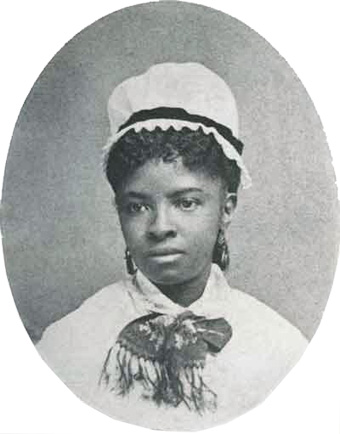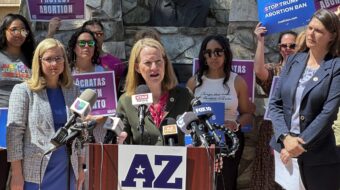
On February 24, 1864, Rebecca Davis Lee became the first African-American woman to become a physician in the United States when she graduated from Boston’s New England Female Medical College in 1864 with a Doctor of Medicine degree.
Lee was born in Delaware on February 8, 1831, to Matilda Webber and Absolum Davis, and raised in Pennsylvania by an aunt who cared for infirm neighbors. In those years, medical care for poor blacks was almost non-existent. She moved to Charlestown, Mass., around the age of 20, and was employed as a nurse until she was accepted into the New England Female Medical College in 1860. It was rare then for women – or black men – to be admitted to medical schools.
After the Civil War ended in 1865 she married Dr. Arthur Crumpler and adopted his surname.
In A Book of Medical Discourses, which she published in 1883, one of the first written by an African American about medicine, Crumpler describes the progression of experiences that led her to study and practice medicine:
“It may be well to state here that, having been reared by a kind aunt in Pennsylvania, whose usefulness with the sick was continually sought, I early conceived a liking for, and sought every opportunity to relieve the sufferings of others. Later in life I devoted my time, when best I could, to nursing as a business, serving under different doctors for a period of eight years (from 1852 to 1860); most of the time at my adopted home in Charlestown, Middlesex County, Massachusetts. From these doctors I received letters commending me to the faculty of the New England Female Medical College, whence, four years afterward, I received the degree of doctress of medicine.”
Crumpler briefly practiced medicine in Boston, primarily serving poor women and children. Once the Civil War was over, she moved to Richmond, Va., believing it to be “a proper field for real missionary work, and one that would present ample opportunities to become acquainted with the diseases of women and children. During my stay there nearly every hour was improved in that sphere of labor. The last quarter of the year 1866, I was enabled…to have access each day to a very large number of the indigent, and others of different classes, in a population of over 30,000 colored.”
Crumpler worked for the Freedmen’s Bureau to provide medical care to freed slaves, but she was subject to intense racism. Male doctors ignored her, druggists would not fill prescriptions that she ordered, and some joked that “M.D.” after her name stood for “Mule Driver.”
By the time she moved back to Boston, her neighborhood on Joy Street in Beacon Hill was a predominantly African-American community. She “entered into the work with renewed vigor, practicing outside, and receiving children in the house for treatment; regardless, in a measure, of remuneration.”
By 1880, her husband moved to Hyde Park, Mass. There was not great demand for her service in that community. She was no longer practicing medicine by 1883 when she wrote A Book of Medical Discourses from the notes she kept over the course of her medical career. It was dedicated to nurses and mothers, and focused on the medical care of women and children.
Crumpler died on March 9, 1895, survived by her husband.
The Rebecca Lee Society, one of the first medical societies for African-American women, was named in her honor. Her home on Joy Street is a stop on the Boston Women’s Heritage Trail.
Adapted from Wikipedia.












Comments